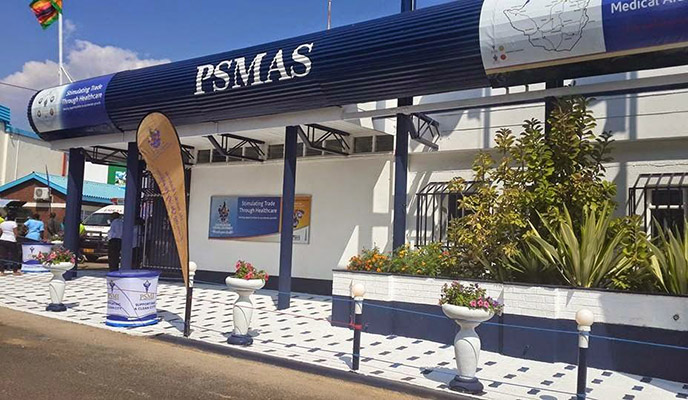
HEALTH insurer Premier Service Medical Aid Society (PSMAS) and its investment arm, Premier Services Medical Health Investments (PSMI), have moved to plug gaps in its financial systems as well as rationalise expenditure in a bid to keep afloat, NewsDay Weekender has learnt.
by RICHARD CHIDZA
Insiders within the PSMAS management this week revealed painful decisions were being taken to save the organisation.
“Government, as our biggest debtor, has continued to struggle and given the fact that it is finding it hard to honour its obligations, including salaries, the likelihood of a constant stream of payments to PSMAS is bleak,” NewsDay Weekender heard.
“Hence, decisions have had to be taken, painful decisions, including salary cuts down to the low level grades of employees. We will also introduce a co-payment system just to make sure we manage things and keep the scheme running. Otherwise, we could be forced into drastic action that will not be helpful to anyone”.
In a statement, PSMI said it was previously operating 13 companies, which resulted in operational and service inefficiencies manifesting as high cost structures and failure to optimise on internal synergies.
PSMI said the inefficiencies impacted negatively on the organisation’s operations.
- Chamisa under fire over US$120K donation
- Mavhunga puts DeMbare into Chibuku quarterfinals
- Pension funds bet on Cabora Bassa oilfields
- Councils defy govt fire tender directive
Keep Reading
“PSMI wishes to inform its stakeholders and members of the public that it is undergoing organisational and processes redesign which resulted in the merging of its 13 companies into one company with divisions under it,” the investment arm said.
“These processes yielded reduced operating costs and improved service efficiency.”
PSMI said it was anticipated that its realignment and re-organisation would save the company more than $2 million monthly and the resources would be channelled towards improving service to patients.
“During the re-organisation process and to achieve maximum benefit, PSMI decided to restructure salaries for all employees, including management, and all legal processes were followed,” the company said.
“The works council, which represents both management and general staff, agreed to the exercise and fully endorsed the salary restructuring process as a way to preserve jobs and improve our cashflows.”
The company said it should be noted that medical funders were failing to pay providers on time, so cashflows had gone down by more than 50%, resulting in the company streamlining all cost structures to align with the obtaining cashflow trends.
“In the same vein, PSMI has instituted other measures to improve cashflows, including introducing a marginal co-payment to members of medical funders defaulting on payments to PSMI,” the statement reads.
“This will result in improvement in service by way of making sure drugs and consumables are available at all times.”
The company said measures and the restructuring exercise had been put in place to make sure PSMI would not retrench workers, like what most companies in the country had done and continued to do.
“It is, however, important to emphasise that the company must live within its cashflows in the tough environment we are operating under,” PSMI said.
“Patients should now expect a huge and sustainable improvement in our service provision, which will compare favourably with other private sector healthcare service providers in the country.”












